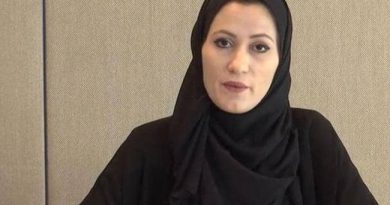Orrin Hatch, the longest-serving Republican senator, dies at 88
Washington (Reuters) – Orrin Hatch, the gentlemanly long-serving Republican U.S. senator from Utah who championed deep tax cuts, an anti-terrorism law and a children’s health program while fighting for conservative judicial nominees, died on Saturday at age 88.
His death was announced by the nonprofit Orrin G. Hatch Foundation, which said he died surrounded by family in Salt Lake City.
Outpourings from fellow lawmakers, some of whom had known Hatch for decades, started flooding the internet late on Saturday as word of his death spread.
“This breaks my heart,” Utah Governor Spencer Cox wrote on twitter. “Utah mourns with the Hatch family.”
Longtime friend and fellow senator Jim Inhofe, a Republican from Oklahoma, said on Twitter, “Orrin was the one who I would go to for wisdom and we had the same love for Jesus and everything we hold dear.”
Utah Senator Mike Lee posted that Hatch was a “friend, a mentor and an example” for him in his career. “His name and memory will forever be enshrined in the history of the U.S. Senate and the State of Utah,” Lee wrote.
An enduring conservative voice in Congress, Hatch held a seat in the Senate from 1977 to 2019 and served under eight presidents, starting in the waning days of Gerald Ford’s term and ending with Donald Trump’s first two years in office. He served in the Senate longer than any other Republican ever.
Trump awarded him the Medal of Freedom, the highest U.S. civilian honor, in 2018.
Hatch fiercely advocated for conservative Supreme Court nominees including Robert Bork – nominated in 1987 by Reagan but rejected by the Senate – as well as Clarence Thomas, nominated in 1991 by Republican George W. Bush and narrowly confirmed by the Senate, and Brett Kavanaugh, nominated by Republican Trump and also narrowly confirmed by the Senate in 2018.
Hatch, a lay minister in the Church of Jesus Christ of Latter-day Saints, a champion of religious liberty and an opponent of abortion rights, represented the state that is home to the Mormon Church and was one of the foremost Mormons in public life in American history.
He was elected to seven six-year terms as Utah’s longest-serving senator. His first election victory was boosted by an endorsement from future President Ronald Reagan. Hatch ran for his party’s 2000 presidential nomination but dropped out early in the race.
He was known for a courteous demeanor and liked writing poetry and songs, but showed flashes of temper. He held powerful posts including chairman of the influential Senate Judiciary and Finance Committees.
Hatch was one the architects of the Patriot Act, passed in the aftermath of the Sept. 11, 2001, attacks on the United States by the militant Islamist network al Qaeda. The law expanded the government’s ability to track potential terrorists by, among other steps, expanding its surveillance powers.
The law’s critics called it an infringement on individual liberties. Hatch called it constitutional, legal and effective.
Hatch was a driving force behind a Republican package of deep tax cuts particularly benefiting corporations and the wealthy that Trump sought and signed in 2017, despite vociferous Democratic opposition. The tax cuts were forecast to greatly increase the federal deficit.
Hatch was a staunch conservative but sometimes broke with fellow conservatives. He was willing to work with Democrats to get certain bipartisan bills passed, and often did so with close friend Edward Kennedy, a lion of liberalism who died in 2009.
The two senators partnered in 1997 to create the State Children’s Health Insurance Program, in which the federal government helps states provide healthcare coverage for children in low-income families. The program has given medical care to millions of children whose families earn too much to qualify for the larger Medicaid healthcare program for the poor but still cannot afford private medical insurance.
He advocated for the nutritional supplements industry, for which Utah is a center. He authored a law allowing companies to make health claims about products but sparing them from federal reviews of safety or effectiveness. Hatch played a key role in Trump’s 2017 action to scale back the Bears Ears and Grand Staircase national monuments covering millions of acres in Utah, a move condemned by conservationists.
A former boxer, he took off the gloves when he fought for conservative judicial nominees. He defended Thomas from a sexual harassment accusation by reading aloud from the horror novel “The Exorcist” during confirmation hearings, implying the nominee’s accuser had cribbed lurid details of her allegations from the book.
Hatch defended Trump’s nominee Kavanaugh after he was accused by a woman of sexually assaulting her years earlier, telling anti-Kavanaugh female protesters he would talk to them when they “grow up.”
Hatch was born on March 22, 1934, in Pennsylvania and grew up in a poor family in Pittsburgh during the Great Depression. He practiced law after college and was a complete unknown when he decided to run for the Senate in Utah in 1976.
He vaulted out of obscurity when Reagan, a champion of the conservative movement, endorsed him before the Republican primary. Hatch then upset three-term incumbent Democratic Senator Frank Moss in the general election. That election was a harbinger of the conservative ascent nationally in 1980 and the decline of the Democratic Party in many Western states.
Early in his career, he called Democrats “the party of homosexuals.” In 1990, he told the New York Times, “That was a dumb thing for me to say. I deserve to have fault found with me because I said it.”
In 1988, Hatch had a showdown on the Senate floor with conservative North Carolina Republican Jesse Helms, who had offered an amendment that would have scuttled Hatch’s bipartisan AIDS-fighting legislation by banning federal funds “to promote or encourage … homosexual activity.”
“I’m not sure I should stand here on the floor of the United States Senate and pass judgment on anybody,” Hatch told Helms.
“Let he who is without sin cast the first stone,” he added.
He is survived by his wife Elaine and their six children.



